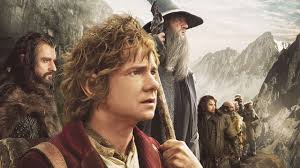Les Girls: Movie Reviews of The Girl on the Train, Sand Storm, American Honey and Under the Shadow by Howard Casner
Posted: October 22, 2016 | Author: Donald | Filed under: Uncategorized | Tags: Allison Janney, Andrea Arnold, Avon Manshadi, Babak Anvari, Edgar Ramirez, Elite Zexer, Emily Blunt, Erin Cressida Wilson, Fish Tank, Haley Bennett, Justin Theroux, Lamas Amar, Laura Prepon, Lisa Kudrow, Luke Evans, Narjes Rashid, Paula Hawkins, Reba Blal, Rebecca Ferguson, Red Road, Riley Keough, Sand Storm, Sasha Lane, Shia LaBeouf, Tate Taylor, The Girl On the Train, Under the Shadow | 1 Comment »For questions: hcasner@aol.com
First, a word from our sponsors: I wanted to say thank you to everyone who contributed to our Indiegogo campaign for 15 Conversations in 10 Minutes. We did very well due to you folks. For those who weren’t able to give, keep us in your thoughts. And if you are able to contribute in the future, contact me and I’ll tell you how. I will even honor the perks on the original campaign.
I am now offering a new consultation service: so much emphasis has been given lately to the importance of the opening of your screenplay, I now offer coverage for the first twenty pages at the cost of $20.00. For those who don’t want to have full coverage on their screenplay at this time, but want to know how well their script is working with the opening pages, this is perfect for you. I’ll help you not lose the reader on page one.
Ever wonder what a reader for a contest or agency thinks when he reads your screenplay? FosCheck out my new e-book published on Amazon: Rantings and Ravings of a Screenplay Reader, including my series of essays, What I Learned Reading for Contests This Year, and my film reviews of 2013. Only $2.99. http://ow.ly/xN31r
and check out my Script Consultation Services: http://ow.ly/HPxKE
Warning: SPOILERS
 A few films have opened of late with the deadlier of the species front and center.
A few films have opened of late with the deadlier of the species front and center.
The one with the most hullabaloo (that’s 1960’s speak for buzz) is The Girl on the Train, based on a best seller by Paula Hawkins that falls into the subgenre of girl novels (as in Gone…, …in the Dark, and …with the Dragon Tattoo).
In this story, an alcoholic takes the same train to and from New York every day. She is especially obsessed with two houses she passes each time, one where her ex-husband lives with his new wife and child (and the alcoholic used to live), and one with a couple she’s created a fantasy world about in which they live a fairy tale existence. When the one from the fairy tale home turns up missing (which is sort of oxymoronic), she tries to figure out what happened, even though there’s a possibility she is the cause of it since she often has drinking black outs and can’t remember everything she did.
Though the story revolves around a group of women and their attempt to take control of their lives, with sisterhood coming firmly in first place, the attitude of the film towards women feels a bit retro with the same old tired tropes: woman are emotionally fragile beings who can easily be manipulated by men because, well, that’s just the way women are, poor creatures, as well as their lives being defined by motherhood (who can’t get pregnant, who can, and who is).
We’ve come a long way baby from I am woman, hear me roar. Read the rest of this entry »
HUMANITY AT ITS BEST AND WORST: Movie Reviews of Sicario and The Martian by Howard Casner
Posted: October 7, 2015 | Author: Donald | Filed under: Uncategorized | Tags: Aksel Hennie, Andy Weir, Benicio del Toro, Chiwetel Ejiofor, Daniel Kaluuya, Darius Wolski, Denis Villeneuve, Drew Goddard, Emily Blunt, Harry Gregson-Williams, Jeff Daniels, Jessica Chastain, Joe Walker, Johan Johannson, Josh Brolin, Kate Mara, Kristen Wiig, Matt Damon, Michael Pena, Pietro Scalia, Ridley Scott, Roger Deakins, Sean Bean, Sebastian Stan, Sicario, Taylor Sheridan, The Martian, Victor Garber | 143 Comments »First, a word from our sponsors: I am now offering a new service: so much emphasis has been given lately to the importance of the opening of your screenplay, I now offer coverage for the first twenty pages at the cost of $20.00. For those who don’t want to have full coverage on their screenplay at this time, but want to know how well their script is working with the opening pages, this is perfect for you. I’ll help you not lose the reader on page one.
Ever wonder what a reader for a contest or agency thinks when he reads your screenplay? Check out my new e-book published on Amazon: Rantings and Ravings of a Screenplay Reader, including my series of essays, What I Learned Reading for Contests This Year, and my film reviews of 2013. Only $2.99. http://ow.ly/xN31r
and check out my Script Consultation Services: http://ow.ly/HPxKE
Warning: SPOILERS
Sicario, the new thriller about the drug war written by Taylor Sheridan (a first film) and directed by French Canadian flavor of the month Denis Villeneuve (Incendies, Prisoner, Enemies), is, in many ways, two movies for the price of one.
The first is an action/adventure film full of car chases and gun battles and plot twists (many of which, if truth be told, I found just a tad tenuous at best) of the action/adventure variety.
The second is a treatise on the drug war.
The first film is often quite successful and impressive. The second is, at least from my perspective, quite shallow and unconvincing.
This means that for much of the time, Sicario is definitely and highly entertaining. Sheridan and Villeneuve, along with the incredibly soaring cinematography of Roger Deakins (one of our finest today), the film editing of Joe Walker, and the heart throbbing music of Johan Johannson, have crafted an edge of your seat story that never really stops and never really lets you stop watching. Read the rest of this entry »
FANTASY ISLANDS: Movie Reviews of The Hobbit: The Battle of the Five Armies and Into the Woods
Posted: December 30, 2014 | Author: Donald | Filed under: Uncategorized | Tags: Anna Kendricks, Cate Blanchett, Christopher Lee, Dion Beebe, Emily Blunt, Fran Walsh, Guillermo del Toro, Hugo Weaving, Ian McKellen, Into the Woods, James Horton, James Lapine, Johnny Depp, Martin Freeman, Meryl Streep, Orlando Bloom, Peter Jackson, Philippa Boyens, Rob Marshall, Stephen Soundheim, The Battle of the Five Armies, The Hobbit, Wyatt Smith | 6 Comments »First, a word from our sponsors. Ever wonder what a reader for a contest or agency thinks when he reads your screenplay? Check out my new e-book published on Amazon: Rantings and Ravings of a Screenplay Reader, including my series of essays, What I Learned Reading for Contests This Year, and my film reviews of 2013. Only $2.99. http://ow.ly/xN31r
Warning: SPOILERS
 The latest entry of The Hobbit franchise is called The Battle of the Five Armies, and I guess I have to first say that I found the title a tad puzzling because I only counted four…armies, that is. There were elves, dwarves, man and orcs.
The latest entry of The Hobbit franchise is called The Battle of the Five Armies, and I guess I have to first say that I found the title a tad puzzling because I only counted four…armies, that is. There were elves, dwarves, man and orcs.
I guess the fifth comes about if you divide those orcky things into two different factions, but, I don’t know, that sorta felt like cheating to me.
At any rate, I think the story of J.R.R. Tolkien’s prequel to The Lord of the Rings could be used as a metaphor for filmmaker Peter Jackson and his production of this final installment of the adventures of a little person called Bilbo Baggins. Read the rest of this entry »
TOM CRUISE REDUX AND REDUX AND REDUX AND REDUX…: Movie review of Edge of Tomorrow
Posted: June 11, 2014 | Author: Donald | Filed under: Uncategorized | Tags: Brendan Gleeson, Christopher McQuarrie, Doug Liman, Edge of Tomorrow, Emily Blunt, Hiroshi Sakurazaka, Jez Butterworth, John-Henry Butterworth, Tom Cruise | 1,198 Comments »Check out my new e-book published on Amazon: Rantings and Ravings of a Screenplay Reader, including my series of essays, What I Learned Reading for Contests This Year, and my film reviews of 2013. Only $2.99. http://ow.ly/xN31r
 Much has been made of the new summer blockbuster Edge of Tomorrow (or as I usually call it, the new Tom Cruise movie, because, damn, if I can ever remember its real name) having a structure based on the Bill Murray comedy Groundhog Day.
Much has been made of the new summer blockbuster Edge of Tomorrow (or as I usually call it, the new Tom Cruise movie, because, damn, if I can ever remember its real name) having a structure based on the Bill Murray comedy Groundhog Day.
But it’s not, really. I mean, yeah, I guess, sort of, because it does have a similar structure. But no, it’s really not. Read the rest of this entry »
Movie Review of DISCONNECT, ARTHUR NEWMAN and THE ICEMAN by Howard Casner
Posted: May 8, 2013 | Author: Donald | Filed under: Uncategorized | Tags: Alexander Skarsgard, Andrew Stern, Ariel Vromen, Arthur Newman, Becky Johnston, Chris Evans, Colin Firth, Dante Ariola, David Schwimmer, Disconnect, Emily Blunt, Henry Alex Rubin, Hope Davis, Jason Bateman, Michael Nyqvist, Michael Shannon, Morgan Land, Ray Liotta, The Iceman, Winona Ryder | 3,465 Comments »Disconnect, the new techno-thriller from writer Andrew Stern and director Henry Alex Rubin, spends half its time preaching the horrors of modern computer technology and all the evils it can spawn, and then seems to change its mind and spend the other half telling us how that very same technology (and the evil it spawns) can bring estranged people together and save our souls by revealing who we really are. One might think that the filmmakers were going for irony, but I have to be honest and say I think irony was the last thing in play here. For me, the driving force of the film was pandering to the audience with filmmakers taking a typical middlebrow approach to art: confront the audience with something important and even horrendous, but only to the degree that it doesn’t upset them too much and affect the box office.
Disconnect has several through lines in which people are linked in a sort of La Ronde relationship—one person in one story is connected in some way to a person in another. It never comes full circle, so it doesn’t quite fit the structure of Schnitzler’s legendary opus, but it is the cleverest aspect of the film and perhaps the only satisfactory irony to be found: we’re all disconnected due to the internet, yet we end up being even more connected than we thought.
The movie is ambitious and sincere, but never quite has the emotional impact it is aiming for. One reason for this is that for a thriller, Stern and Rubin aren’t able to really generate that many, well, thrills. There’s a lot of conflict, but precious little tension and it seems to take its time going anywhere. There could be several reasons for this. None of the various stories are all that original and their plot lines have few surprises; every turn is signaled well before it happens and the resolutions are rather ho-hum with a touch of LOL along for the ride (they all climax in a set of slow motion, Matrix like intercut sequences that were probably suppose to emphasize the tragedy of it all, but instead only doubled the over the top feeling that was already there).
In addition, each through line has enough going for it to be a whole movie unto itself; but by squeezing each plotline into the length of basically a half hour TV episode, it tended to also squeeze out all the suspense (I couldn’t help but think of what Alfred Hitchcock or Claude Chabrol could have done with just one of the stories). Finally, the whole thing just felt a bit too manipulated, never quite real, with characters that seemed more driven by the plot than the plot being driven by the characters; the result is that the more empathy the filmmakers tried to create for their characters, the less there was.
The acting is solid, but save for a couple of exceptions (Alexander Skarsgard as a victim of identity theft and Michael Nyqvist as someone who may or may not have stolen that identity), no one really rises above the limitations of the screenplay. Hope Davis is wasted in a minor role (and for some reason is given the thankless and perplexing task of not understanding why her husband, played by Jason Bateman, might actually want to find out why his son tried to kill himself). Everyone seems to wear their emotions on their sleeves. Subtle is not a word that might be used to describe the film.
In Sam Shepard’s great play The Curse of the Starving Class, there is a conversation that goes something like this: one character wants to move in order to get away from their present environment, but another character responds by saying, “…but we’ll still be the same people”. I couldn’t help but think of this when I saw Arthur Newman, a film about a man who creates a new identity for himself (yes, Virginia, Arthur’s last name is not the most subtle of choices here).
Colin Firth plays the title character, a Babbit in a grey, flannel suit (well, since he works for Fed Ex, brown khaki pants, but you get my drift). Arthur is a rather boring character, to be both blunt and kind. And when he’s fired from his place of employment, he decides to reboot his life. Unfortunately for him, and the audience, the new Arthur is as boring and uninteresting as his previous incarnation. To make matters worse, Firth uses a bland American accent that’s even more tedious than his personality.
Things pick up a bit when he meets Emily Blunt (as things are wont to do when one meets Emily Blunt), who plays a character who has identity issues of her own, issues compounded by a game she talks Arthur into playing in which they break into people’s homes, wear their victims’ clothes, eat their victims’ food, drink their wine and have sex in their beds.
In the end, screenwriter Becky Johnston and director Dante Ariola show great empathy for their characters, but the movie never really comes together. I suspect that this is because there are so many through lines going on (Arthur wanting to be a golf pro; Blunt’s issues; their sex games; Arthur’s failed relationship with his son), that the filmmakers can’t seem to find a way to weave them all together in a satisfactory whole.
The Iceman, the new crime drama by writers Ariel Vromen (who also directed) and Morgan Land, is a movie where Ray Liotta finally meets someone even more psychopathic than he is and where Winona Ryder, David Schwimmer and Chris Evans try to earn street cred by playing against type (for the record, Evans comes out best). There’s nothing really wrong with the movie. It gets the job done and I was never bored. Michael Shannon does very well in the title role. But in the end, it doesn’t come close to plumbing the existential depths of the television series Dexter and falls into the “if you’ve seen one contract killer movie, you’ve seen them all”.
Tell me what you think.
Movie Review of LOOPER by Howard Casner
Posted: October 5, 2012 | Author: Donald | Filed under: Uncategorized | Tags: Bruce Willis, Emily Blunt, Joseph Gorddon-Levitt, Looper, Rian Johnson | 4 Comments »The dystopian future in Looper, the new time travel movie written and directed by Rian Johnson, is every Democrat’s nightmare of what would happen if the Republicans regained control of the government: no middle class; no social safety net; everyone has guns; and China rules the world economy.
Everyone seems loopy over Looper (sorry, couldn’t resist), but I have to admit it left me more than a bit under whelmed. The basic idea, the conceit, it absolutely brilliant in its high conceptiveness (I love making up words): as anyone who has seen the previews knows, time travel has been invented in the future, but has been outlawed, and only bad guys use it to send people back it time to be assassinated by hired killers, called Loopers (the main one here played by Joseph Gordon-Levitt). But then things didn’t quite go as I expected. In fact, once this conceit was established, I found the plot just one arbitrary decision after another until I felt the writer was driving the story rather than the concept and the characters changing the gears.
First, I find it almost impossible to believe that all the future governments would have gotten together in order to ban time travel (this is perhaps the Republicans’ nightmare view of what would happen if the Democrats regained power—world peace and cooperation). But let’s let that go; I’m more than willing to at least give that much on the basic set up (hey, I can be a good sport at times).
But things started falling apart for me when it was revealed that at some point, the looper’s future self is sent back for assassination. Why? Well, the only reason really given is that time travel is so illegal (you know, as opposed to only so-so illegal–like marijuana, maybe), they have to be disposed of. Okay, fine. But a week later and I still haven’t figured out the cause and effect here.
When this future looper is sent back, his present day counterpart kills him (himself); realizes that the time has come for him to retire; and he’s given a big payoff so that he can live out the rest of his life the way he would like. Thirty years to be exact. Why thirty? Why not thirty-one? Why not twenty-eight? Why not thirty-three and a third? Do I hear forty two years, one hundred and twenty two days? Again, a week later and I still haven’t figured out the cause and effect here.
But the arbitrariness doesn’t stop there. There are actually two, count them two for the price of one, conceits to the story. It’s not just a high concept movie, it’s a HIGH high concept movie. Some people in this future have suddenly obtained a genetic mutation that gives them a telekinetic ability. I’m not sure why Johnson fell he needed this to be part of the plot. To be ruthlessly honest, it feels like the sort of thing that is added when a writer doesn’t trust his basic concept (which, if so, is too bad, because again, the concept is brilliant) or it’s the only way he can force an ending based on the premise first given. It’s not that it doesn’t play a part in the story, but it just seems so…arbitrary, and not nearly as interesting as the original idea of loopers. But a writer’s got to do what a writer’s got to do, I guess.
It all leads to a showdown on a remote farm run by the only empathetic character in the story played by Emily Blunt (though for me, I just didn’t find her interesting enough to empathize with). You see (and stay with me here), in the future some ruthless gangster has gained control of all gangs and is systematically getting rid of all loopers (how anyone could know what is going on in the future is never explained). This leads to a child being raised by Blunt, a cute as a buttons, barely out of his nappies boy who has such an advanced stage of the telekinesis gene, that in the future it will give him the power to take over everything. (Exactly why he only takes over the gangs when with power like this he could take over the world, well…whatever).
So this new boss must be eliminated, because the men he sends out after Gordon-Levitt’s future looper (played by Bruce Willis) accidentally kill his future wife and Willis must stop this from happening. So, the goal is kill this kid so he won’t grow up to be a ruthless, sociopathic gangster that will do anything to gain power as opposed to the way everybody else grows up if the new boss never came along—ruthless, sociopathic gangsters that will do anything to gain power. But at least the future wife will still be alive (well, I guess—I mean, she died unintentionally so it could have happened no matter who ran the gangs, but a reason was needed for the future looper to come back, no matter how….arbitrary, I guess).
Wow, that was kind of exhausting.
At the same time, the movie is technically arresting, creating a very convincing nightmarish future, though perhaps the most impressive and moving shots are not the crumbling cities, but a lonely diner and farmhouse in the middle of nowhere. There are also some beautiful shots of an Asian city in the future that would be perfect for one of those 1000 piece jigsaw puzzles. And there are also some moments of wit, not just in the dialog, but in the way Gordon-Levitt mimics Willis’s facial expressions. But perhaps the emotional high point is the rather stunning and deeply emotional moving way Johnson ends the story; no matter what had come before, the ending does get to you.
This is the second time that Gordon-Levitt has joined forced with Johnson. They first worked together on the high school, hard boiled film noir Brick, a cult favorite (something I have little doubt that Looper will also become). I actually sorta have the same issues with Brick as I do here. The concept of teenagers acting like Humphrey Bogart and Lauren Bacall and talking like Sam Spade was arresting at first (though my immediate reaction was actually, I’ve seen Bugsy Malone, I don’t quite get the originality here), but in the end, I started losing interest because I felt the concept was driving the story and little else. It was the same here.
But also like Brick, I realize I’m going to be on the outside of the zeitgeist here. Johnson is brilliant at concepts and is every studio’s dream. The fact that he and I don’t see eye to eye will probably in the end say more about me than him.












